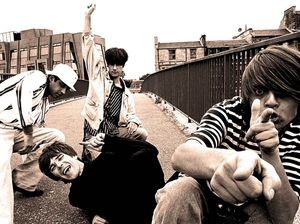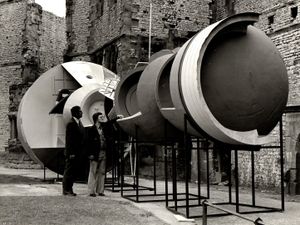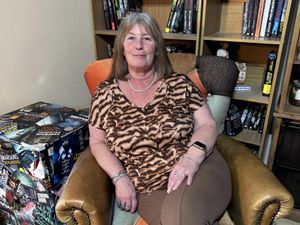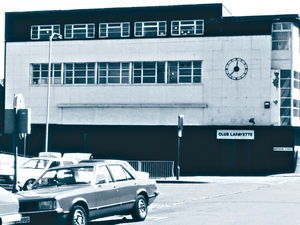Andy Richardson: Big names may be grand but they’re the same as you and I
"I don’t want to do this interview,” said the A-Lister as we stood three paces apart.

I’d driven for an hour to get there and we’d been shooting the breeze for 10 minutes before the tape started to role. “I mean, it doesn’t make sense, does it?”
He was right, unfortunately, it didn’t. It was useless promo to sell copies of something in which he wasn’t particularly interested. So why, logically, should he put his name to it?
Why should he engage and answer questions that had no relevance to him?
I switched off the tape. “That’s fine.”
He looked towards me. “Think about it. If I’m talking about something in which I have no interest, you’re not going to get a very good article, are you?”
He was right. Damn him. And so I collected my things, thanked him for his time and made to leave. As I moved towards the door, he stopped me. “You are stopping for lunch, aren’t you?”
“Erm…. Yes.” I said, slowly, entirely unaware that anything was planned.
He picked up his packet of cigarettes and beckoned me towards an uncovered seating area away from others. The lighter clicked, the tobacco momentarily ignited and he drew long and hard on his cigarette. And then he began to chat.
While we’d scheduled a 10-minute interview about a subject in which the TV star and household name had zero interest, once we’d got past that hump in the road he talked for two hours.
He shared stories about others in his industry, offered stories that had jaw-dropping qualities and provided an insight into the most mercurial of minds.
Later, I met a friend who also interviews and writes for a living. Entertainers, he said, were like the Wizard of Oz. They create remarkable hoopla and have charisma to burn. But when you get away from the bright lights and dazzling show, they’re just the same as you and I. Pull back the curtain in the Wizard of Oz and there’s a little fella pulling levers to make the whole shebang work.
And the man behind the curtain, rather than the all-singing, all-dancing munchkins on the yellow brick road, is what’s most interesting of all.
It’s not the first time I’ve gone behind the curtain to observe that the biggest names, however glamorous and grand, are really just like you and I.
My favourite non-interview was with a member of one of Britain’s most culturally important bands; The Stone Roses.
The band captured the zeitgeist in the late 1980s when they led the Madchester revolution and created music that remains relevant and fresh some 30 years on.
At the time, their singer Ian Brown described them as the most important band in the world. It was no idle boast. Fast forward to the mid-1990s and they were all washed up. The drugs, the money, the fame and the overwhelming weight of expectation had burned them out like a car doused in fuel and left to burn.
At the time, I worked in London for the New Musical Express and followed every detail of the band’s gradual disintegration. The first guy to leave was their drummer, Reni, a brilliant sticksman who provided the group’s unique rhythm.
So we hired a car, drove from London to Manchester, tracked him down and knocked on his front door. He was as surprised to see us as we were to have found him – there had been no prior warning, no phone calls made; just a trip along the M1 and a tap on the front door.
He welcomed us in, made us tea and sat us down in the kitchen. “I won’t do an interview, but I will talk to you,” he said, as he proceeded to pour his heart out for the next hour and 45 minutes. It was explosive stuff, filled with tales of Class A drugs, psychodramas, fall-outs and issues surrounding mental health. It was unquestionably the best interview I’d conducted and was full of revelations that would have made front page headlines on national newspapers, not just the small-but-perfectly-formed music title for which I worked.
He cried, he wrung his hands in anguish, he offered revelations that would have had lawyers thumbing through their case law books.
Then, at the end of it, he reminded us of the pact into which we’d entered when we stepped across the threshold.
“We agreed it wasn’t an interview,” he said. “So you’re not going to use any of that, are you?” I nodded my agreement.
And though my editor was less than impressed by the one that had got away, I was as good as my word. Celebrities are nothing if not the man behind the curtain. And the best interviews of all are the ones we can never write.





